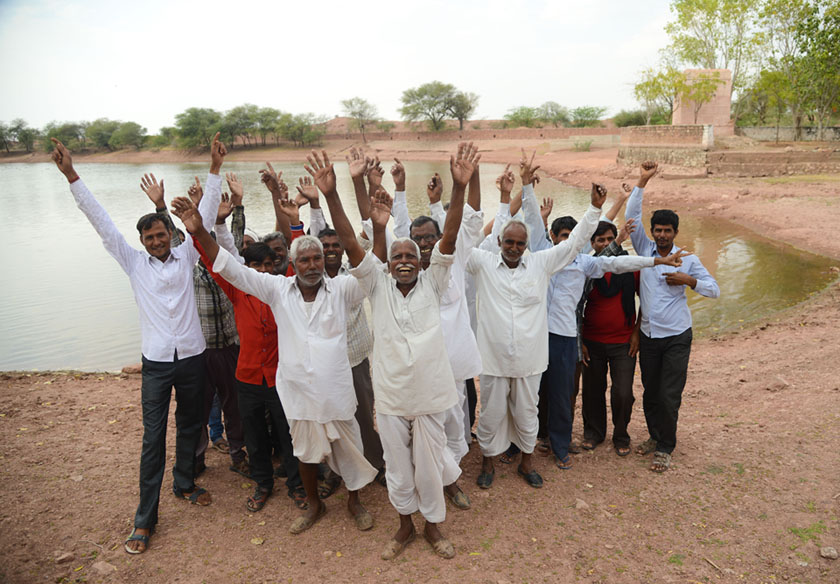Imagine the generic scenario of a farmer in a rustic corner of India. He lives on a small farm in a remote tribal village, has received minimal education, and has no capital except his land, no resources and security, whatsoever. He feels all alone.
But so does his neighbour. And all the other million farmers in the subcontinent.
Whom do they go to, when in time of need?
Why not each other?!
| When we become part of each other’s narratives, we not only offer possibility for alternate (mutually enriching) interpretations, our new shared story becomes a way to negotiate future challenges and crises while building real communities.
-Sherry Mead, Crises and Connection (2011) |
In his article titled ‘The Power of Peer Networks’, Jab Dasteel states that young professionals who ignore their peer network groups… are doing so at their own risk! And true enough, for those of us in the corporate world, we are ever dependent on peer support for learning and problem solving; and more so for growth in our professions. The same goes for those of us in blue collar jobs, where unions and collectives form the basis of job security and bargaining power.
While most Corporates invest strongly in development organisations which create human, natural, physical and economic capital for communities, very few invest in the creation of the final link in the livelihood pentagon—the social capital. ‘Social Capital means the networks of relationships among people who live and work in a particular society, enabling that society to function effectively.’ But how should these be created?
So, for the farmer we spoke about, at the beginning of our story, the network of his fellow farmers is the Social Capital that will sail him through the times of need. Unfortunately, unlike the Medical Association or the Association of Engineers, there exists no association of impoverished farmers who meet in quarterly and annual conferences to discuss their first hand learnings and have themselves updated to latest findings in their sector.
CSR teams and Corporate Foundations have a ready advantage to urge their implementing partners to organise their beneficiaries in agricultural, health, education, gender empowerment programmes in networking groups, for mutual support and learning. The beneficiary remains the most important element at the core of this Group Based Beneficiary Centric Approach. We have already been doing it with formation of Self Help Groups, helping impoverished women access economic capital. It is additionally important to measure the Social Capital that they have gained as a result. A recent article in VillageSquare speaks about how members of self-help groups in the Gir region of Gujarat are going beyond microfinance and income-generation activities to fight against social taboos attached to widows and help them lead a better life. The SHGs are now a Social Capital for their members, and their livelihood pentagon is finally complete.
Organisations working with farmers for improving agricultural practices, often organise them in groups, which creates an easier learning environment, effective problem solving, helps in procurement of seeds and fertilizers, and gains them a better deal for the produce. Further to this, it has been observed that farmers lend money internally within their groups, especially in seasons of procurement, so that no member is left behind in the toil of the oncoming agricultural cycle. Often farmer sense courage in times of adversity, knowing that they are not alone in their struggle, and that whatever has to be endured, will be endured by the group as a whole.
When it comes to programs related to community health, sanitation or water management, creation of village level groups has instilled a great sense of ownership and responsibility among people towards their common property resources. Often communities contribute through labour and meagre capital in maintenance of cleanliness, sanitation structures or even drinking and irrigation water supply structures. It is through this feeling of shared ownership, the long process of democratisation reaches our communities.
With the new CSR mandate Corporates are keen on fulfilment of their social responsibility. As they mature with time, they will understand that there is a larger project of nation building awaiting their help. Marginalised communities will have to be empowered with this Social Capital, to feel included as a part of this nation. This is an unexplored opportunity for the Corporates to invest in.

Pearl Tiwari is the Director of Ambuja Cement Foundation, the CSR wing of Ambuja Cements Limited. In a professional career spanning over 30 years, Pearl has been associated with the not-for-profit, educational and corporate sectors. Pearl joined Ambuja in 2000 and ever since has been at the helm of nurturing the Ambuja Cement Foundation that has expanded from a fledging team to nearly 400 development professionals, with a pan-India presence active in 21 locations across 11 states.
Views of the author are personal and do not necessarily represent the website’s views.
Regards,
The CSR Journal Team
Subscribe


